Appointment setting, in the vibrant Australian business environment, is a crucial channel for nurturing relationships and creating trust. In addition to its logistical role, this functions as a strategy that helps to create lasting associations with customers, shareholders, and associates. The science of making appointments has become an essential aspect of managing professional interactions with subtlety and realness amidst a world where personal connections matter most.
Australia is marked by diverse and dynamic markets thus making it necessary to develop appropriate relationship strategies; appointment setting is the foundation of this process. Whether it takes place in bustling urban centres or regional hubs, effective scheduling and management of appointments pave the way for meaningful engagements. As businesses attempt to single themselves out from their competition by finding a niche in this hectic economic environment, becoming adept at fine details such as appointment setting skills becomes imperative for success in the long run leading to sustainable partnerships.
Importance of relationship building in business
In business, it is essential to establish strong relationships to foster trust among individuals. Reliable clients, suppliers, partners, and other stakeholders serve as a foundation of business sustainability. They improve communication, foster teamwork, and expose new possibilities. Entrepreneurs who value relationship building can make stable customer bases, attract the best workers, and withstand hard times. It is no longer enough to think about reputation or word of mouth in an interconnected world; there must be genuine mutually beneficial relations, which are not only a strategy but also the key to thriving in a competitive environment.
Benefits of Appointment Setting
A variety of advantages are offered by appointment setting for any kind of business. In the first place, it makes the scheduling process more efficient using time and resources. Proactively arranging meetings or consultations will enable businesses to optimise their workflow and minimise scheduling conflicts.
Enhanced Efficiency
The management of appointments is a process in which the calendars are arranged in a specific order. The need to have an efficient system of making appointments organisations would reduce the time spent and energy consumed for planning such meetings. Thus, this development saves resources and cuts down on the possibilities of overlapping schedules or forgotten bookings. Consequently easing administrative responsibilities enables teams to channel their concentration towards key activities that result in high output as well as smooth running.
Improved Customer Experience
Businesses that offer customers appointment scheduling options at times that are convenient for them show dedication to satisfying their needs. The overall customer experience is enhanced by having flexible schedules for service, consultancy or sales appointments. By being accommodating in terms of preferences and making the process simple, business entities can make their clients happy through great satisfaction and loyalty on their part. The customer experience can be further improved by timely reminders as well as follow-ups to ensure that no appointments are forgotten.
Increased Sales Opportunities
Appointment setting allows companies to interact with leads and prospects at important stages of the sales process. To quicken the sales cycle and get better conversion rates, businesses must be proactive in reaching out to potential customers and showing them what to do next. In terms of timely appointments, they might involve scheduling product demonstrations, consultations, or follow-up meetings as well as keeping prospects engaged and concerned. Moreover, when firms manage to attract prospect’s attention at their most receptive moments, they can realise sales opportunities and achieve revenue growth targets.
Better Time Management
When businesses employ structured appointment settings, they can better manage their time and resources. By prioritising appointments according to their importance and strategic value, teams ensure that they concentrate on high-priority activities. This disciplined approach to time management helps to prevent overcommitment and ensures that key tasks are completed on schedule. Businesses can maximise productivity by optimising schedules around appointments to achieve goals more efficiently.
Stronger Relationships
Regular interactions with clients, partners, and stakeholders help to develop trust between them with time. Through maintaining contact with important contacts via appointments, businesses can show their concern in developing relationships and meeting the necessary obligations. This way of approach helps in building a stronger bond leading to higher retention and loyalty. In addition, the fixed schedules appointments will help two parties have deep discussions on some issues, solve problems together, and even collaborate more. As a consequence, organisations are capable of forming long-term partnerships that fuel mutual success and expansion.
Read More About Strategies For Effective B2B Appointment Setting
Effective Strategies for Appointment Setting
To attain business success, one must be skilled at appointment setting. Use these effective techniques to build stronger relationships and stimulate more meaningful conversations.
Clear Communication
For effective appointment setting, begin with clear and precise communication. Make sure the message has a sense of direction regarding the purpose of the appointment as well as the value proposition, information required, and any preconditions that may be necessary. Employ professional yet friendly and engaging language to get your readers involved in responding positively.
Personalisation
Increase engagement with every potential or existing customer, by customising your approach to each of them. Address the person directly, refer to history or personal preferences, and show that you understand what they need while they are still struggling. You will indicate that you value their uniqueness and sincerely want to assist in dealing with the problems that bother them.
Provide Value
To get people to turn up for an appointment, it is important to highlight its benefits. It’s essential to tell the prospect exactly what they will get from attending, a free consultation, a tailored demo, or access to insights not available elsewhere. To make this appointment more attractive, you need to stress that your proposed solution will solve their problems and bring them closer to their vision.
Offer Flexibility
Include various scheduling choices depending on whether the receiver is free or not. Gratify multiple time slots, e.g., morning, afternoon, and evening to make it easier to find a suitable time for both parties. Use online booking systems such as scheduling tools and platforms that allow acceptors to make appointments at their convenience.
Follow-Up Promptly
Following the initial request, ensure that you make a quick confirmation of an appointment or reschedule if necessary. Encourage your audience to respond to the invitation and validate their flexibility with coherent courtesy. If need be, one can offer other choices or even recommend one specific time for the meeting to hasten the decision-making process.
Utilise Multiple Channels
Use multiple communication avenues to increase your presence and involvement with potential clients. Employ emails, telephonic conversations, social network postings, or even individualised cards to grab their attention. Try out various methods to identify which channels are most responsive to your desired demographics.
Set Clear Expectations
Explain the plan, aims, and future moves for the appointment so that it aligns with both parties’ expectations. Also, provide any necessary briefings or preliminary guidelines to enable the meeting to run more efficiently. The opening up of information coupled with clear understanding helps in building trust and confidence that will make prospects commit to an appointment.
Track and Analyse Performance
Keep tabs on your appointment setting success by monitoring key metrics like response rates, appointment confirmation rates, and conversion rates.
Maximise your time and focus on what matters most with our reliable appointment setting solutions. |
Read More About B2B Appointment Setting: Critical To Your Sales Funnel
Impact of Appointment Setting on Relationship Building
Appointment setting that impacts relationship building is not just about scheduling. It’s also about fostering trust and cultivating meaningful connections. Here’s how appointment setting can impact relationship building:
Consistent Engagement
- Recurring appointments create an established pattern of communication that is necessary to keep relationships alive and growing. The continuity between both sides ensures that they grow together so that the relationship does not become stale.
- Businesses show their dedication to the association by keeping up with date book consistency. This steadily builds trust and faith in the alliance as both parties can depend on each other to honour their obligations.
- Consistent interactions also open room for continuous dialogue and cooperation thus enabling the parties to respond promptly to changing requirements, opportunities, and threats.
Personalised Interactions
- The possibility of appointment setting is that it enables businesses to tailor their interactions in line with the specific tastes, preferences, and requirements of an individual. As much as this is the way forward for most companies, it can enable them to come up with something unique and long-lasting for their customers and partners.
- It shows clients or partners of a business deal with the same level of value put in place by a business organisation on their specific selves. One way to achieve this could be through the use of a name, mentioning things discussed before, or acknowledging what they like most.
- In addition, personalisation increases the relevance and effectiveness of contact because it ensures that both the content and format of the meeting match with its addressee. This touch has an impact on deepening relations between the parties involved.
Focused Discussions
- The scheduled appointments offer an opportunity for the parties involved to have devoted time for focused discussions and collaboration. Appointments, contrary to ad-hoc meetings or spontaneous conversations, facilitate both sides to allocate enough time and concentration on the subject matter.
- Businesses can set an agenda and objectives for the appointment to ensure that their discussion remains concentrated and productive. With such a structure, it is possible to avoid any tangents or distractions, thereby increasing the efficiency and effectiveness of the talk.
- This way we can go beyond surface impressions in exploring complex issues through collective thinking toward reaching agreed-upon solutions. This creates a platform for mutual respect among team members as well as a foundation for continued teamwork and success.
Building Trust and Rapport
- Businesses that are reliable and competent and have integrity towards their clients or partners have a better chance of showing it during regular meetings. By fulfilling what they say and committing to the projects or tasks given, businesses gain the trust of people who are part of them.
- Trust is needed for relationships to be strong and lasting. When businesses do as promised and think about the interests of their customers or partners, they feel secure and believe in the establishment made.
- Besides reliability, establishing rapport requires embracing empathy, understanding, and rapport-building abilities. By listening actively to customers’ needs and concerns with respect while providing emotional support to them from time to time, firms can form stronger bonds.
Demonstrating Value
- To illustrate, proactive appointment setting is a way that companies can show their clients or partners their value proposition and expertise by starting the conversation and offering helpful insights and solutions to address challenges and issues faced in the business.
- It is more than just selling products or rendering services; however, it involves interacting with customers or partners to know their needs and objectives and then providing them with necessary proposals and recommendations.
- Clients or Partners on the other hand can tell if an organisation has real interest in their successes, healthiness, prosperity, etc., which makes them start seeing such firms as confidants and ideal associates. This concept of worth improves the association between these parties, leading to permanent commitment and the development of advocacies.
Facilitating Collaboration
- Regular meetings serve as a platform of cooperation as well as engagement between businesses and their customers or associates. Stakeholders are brought together for discussions on common goals, projects, or initiatives that enable alignment, brainstorming, and solving problems.
- Collaboration helps to instil a sense of ownership and commitment in relationships, with parties working in unison towards the achievement of common objectives. This feeling of shared purpose strengthens the bond between parties increasing the likelihood of success.
- Moreover, apart from just encouraging collaboration inter-firmly, appointments can also allow teamwork within departments and teams in an organisation. By integrating cross-functional groups or subject matter experts into one place, appointments speed up the process of decision-making and problem-solving aimed at fostering progressiveness and innovativeness.
Opportunities for Feedback
- Regular engagements allow businesses to have open communication and feedback loops with their clients or partners. This shows that they are always ready to be given a piece of advice actively soliciting for it, and the timeliness in which they solve an issue.
- Feedback is important for identifying areas where improvements can be made, and difficulties that may arise and also for enhancing the relationship between parties. By creating an environment where feedback is freely exchanged without any prejudice businesses can create room for continuous improvement as well as collaboration among workers.
- Moreover, while asking for feedback from clients or partners, appointments can also serve as avenues through which companies offer constructive comments and guidelines on how to achieve objectives. Such a give-and-take enables firms involved to trust each other better thus improving the quality of the whole relationship.
Strategic Alignment
- Appointment setting allows businesses to maintain the engagement of clients or partners in line with broader strategic objectives and priorities. The focus of a business should be on scheduling with key stakeholders and decision-makers, this helps them concentrate on activities that contribute towards their goals.
- Strategic alignment makes appointments meaningful and useful for the parties involved hence maximising their worth. By concentrating on activities consistent with its strategic goals, an organisation can increase efficacy, efficiency, and impact in relationship-building efforts.
- In addition to aligning individual appointments with strategic objectives, companies may also use these opportunities to discuss wider strategic initiatives and priorities with their customers or partners. Through engaging in strategic conversations and alignment sessions, they ensure that both groups work together towards common targets which strengthens overall partnership thereby driving mutual success.
To Wrap up
Appointment setting is a powerful tool for nurturing relationships and driving business growth. Trust, collaboration, and mutual success can be established through consistent engagement, personalised interactions, and focused discussions. This way, businesses can improve their customer experience, build stronger partnerships, and stand out in a very competitive market.
Do you need to simplify your appointment setting process or make the most of your relationship building? Why not try GenLead’s partnership! With our complete appointment setting services we can help you plan for significant engagements with customers, and prospects among others. Contact us today to get more information on how we can support your business objectives by browsing our website.
Streamline your schedule and boost productivity with our expert appointment setting services. |
FAQs
How does appointment setting contribute to building trust with clients and partners?
Appointment setting demonstrates reliability, consistency, and dedication to meeting the needs of clients and partners, which fosters trust over time.
What are some best practices for effective appointment setting?
Best practices include clear communication, personalised interactions, providing value, and offering flexibility in scheduling to accommodate the recipient’s preferences.
How can businesses leverage appointment settings to enhance customer experience?
By offering convenient scheduling options, personalised attention, and valuable insights during appointments, businesses can create a positive and memorable customer experience.
What role does appointment setting play in nurturing long-term relationships?
Appointment setting provides opportunities for consistent engagement, focused discussions, and collaboration, which are essential for nurturing and strengthening long-term relationships.
How can businesses measure the impact of their appointment setting efforts on relationship building?
Metrics such as appointment confirmation rates, customer satisfaction scores, and client retention rates can help businesses assess the effectiveness of their appointment setting strategies in building and maintaining relationships.






